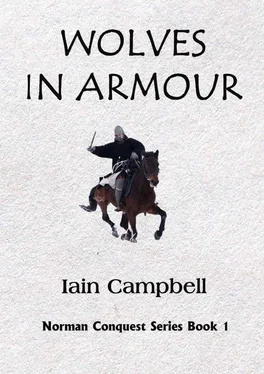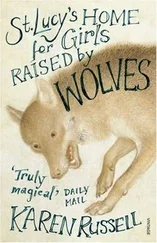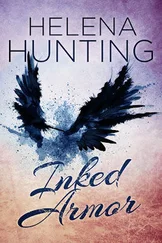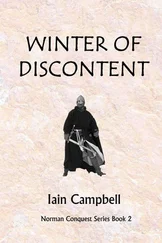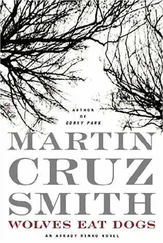Iain Campbell - Wolves in Armour
Здесь есть возможность читать онлайн «Iain Campbell - Wolves in Armour» весь текст электронной книги совершенно бесплатно (целиком полную версию без сокращений). В некоторых случаях можно слушать аудио, скачать через торрент в формате fb2 и присутствует краткое содержание. Жанр: Исторические приключения, на английском языке. Описание произведения, (предисловие) а так же отзывы посетителей доступны на портале библиотеки ЛибКат.
- Название:Wolves in Armour
- Автор:
- Жанр:
- Год:неизвестен
- ISBN:нет данных
- Рейтинг книги:4 / 5. Голосов: 1
-
Избранное:Добавить в избранное
- Отзывы:
-
Ваша оценка:
- 80
- 1
- 2
- 3
- 4
- 5
Wolves in Armour: краткое содержание, описание и аннотация
Предлагаем к чтению аннотацию, описание, краткое содержание или предисловие (зависит от того, что написал сам автор книги «Wolves in Armour»). Если вы не нашли необходимую информацию о книге — напишите в комментариях, мы постараемся отыскать её.
Wolves in Armour — читать онлайн бесплатно полную книгу (весь текст) целиком
Ниже представлен текст книги, разбитый по страницам. Система сохранения места последней прочитанной страницы, позволяет с удобством читать онлайн бесплатно книгу «Wolves in Armour», без необходимости каждый раз заново искать на чём Вы остановились. Поставьте закладку, и сможете в любой момент перейти на страницу, на которой закончили чтение.
Интервал:
Закладка:
Alan’s men returned to their starting position, where they saw Duke William. The duke had removed his helmet and was galloping around proclaiming he was alive. Eustace of Boulogne had seized the papal banner and was carrying it as close to William as he could. Alan gathered that a rumour had arisen that William had been killed, and the duke was in the process of overcoming that rumour. William gathered what cavalry was available on the Norman left flank, including Alan and the men of de Mandeville that Alan had just led, and then led them back into the English still below the shield-wall. There some of the English were making a forlorn last stand on the hillock near the stream, some 200 yards from the main English shield-wall at the top of Caldbec Hill. Hacking and slashing, the Norman horsemen cut them down and stabilized the line.
A protracted break in hostilities then occurred while the English moved troops to their now weakened right flank. At the same time the Normans and their allies re-established their lines, watered their horses at the streams and sat to eat whatever food they had thought to bring with them. In Alan’s case it was a piece of bread and some jerked beef, washed down by clean water he carried in a water-skin tied to Odin’s saddle.
Hugh de Berniers walked up to Alan and handed him a replacement lance before sitting down next to him and clapping him on the shoulder. “That was warm work! By God’s grace we suffered few casualties,” he said as he accepted a swallow of Alan’s water. “It was quick of you to size up the situation and take control over what had to be done. I’ll see that Count Geoffrey hears of it. I’d better get moving, as we’ll be back at it again soon!”
Hugh was correct. After a break of about an hour and a half the Norman infantry and cavalry followed the archers up the now blood-soaked and churned ground of the hill. New supplies of arrows had arrived and this time the bowmen aimed higher, allowing the arrows to fall on the lesser-protected fyrdmen in the rear ranks. The crossbowmen were more effective, with their bolts smashing through shields and into the men beyond.
The infantry struggled past dead and dying men and horses from the previous attacks. Again the English war chants rang out, increasing in volume as the foreigners reached the shield-wall and once again the bitter hand-to-hand fighting resumed. Again the Norman infantry were unsuccessful and were repulsed. Again the Norman cavalry were sent up the hill, but still the Normans couldn’t force the English off the hill or force a way through the shield-wall.
The Normans had noticed that the banners of Harold’s brothers, the earls Leofric and Gyrth, had both disappeared- but still the Dragon Standard and the banner of ‘The Fighting Man’ flew over the centre of the English line. Time and again the Norman horsemen battered against the English line, each time falling back and allowing the hail of Norman arrows and crossbow bolts to resume.
Alan participated in two of these charges. Odin snorted and cavorted as he rolled his eyes in a mixture of fear and excitement resulting from the smell of blood, the constant shouting- and empathy with Alan’s own feelings of fear. Labouring up the hill, slipping on the spilled blood and stumbling over the fallen bodies of the dead and living, Odin pressed gamely up to the shield-wall to allow Alan to prod with his lance at whatever target presented itself beyond.
In the next charge Alan saw Hugh de Berniers fall from his horse, hit in the thigh by a throwing-axe. Alan forced Odin over to where Hugh stood gamely on one leg, offered him a hand and pulled him onto the pommel of the saddle before turning to trot back to the Norman lines. There, as Hugh was assisted to the ground he slapped Alan’s hand in thanks for saving his life, saying nothing as he was hit by a wave of pain as his injured leg touched the ground.
By now any precision in the Norman attacks, always hampered by the terrain, was a thing of the past. Duke William appeared to have given up on the Norman heavy-infantry, accepting they were not up to the task of forcing their way uphill and through the shield-wall. Instead he was relying on waves of the heavy cavalry that had won him each of his previous victories, supporting them with archers and cross-bowmen.
The horsemen were no longer organised into their original squadrons, and attacks were mounted sporadically as sufficient knights and men-at-arms at the base of the hill felt that they and their mounts were ready for another tilt at the enemy. Blown and exhausted horses were led to the streams to be watered. Some men, on foot and on horseback, could be seen going up Telham Hill on their way back to Hastings. Others were shuttling backwards and forwards to the large tents that been erected on the level ground near Starr’s Green, where the injured were being treated.
Alan watched the flow of battle for nearly an hour, having watered Odin and allowing him time to recover his strength. The Norman right flank, where fitzOsbern commanded the Flemings and French, had twice successfully lured overconfident Englishmen into following by pretending flight, with the ‘fleeing’ cavalry and others from the Norman centre then cutting the pursuing Englishmen to pieces.
In the late afternoon Alan lined up for another attack on the English centre. As he had often done during the day, Duke William joined the line. His personal leopard banner waved in the air, carried by the standard-bearer next to him. Riding up the hill was a re-occurring nightmare, except that by now the English had run out of missiles to throw as the constant attacks by the Norman archers kept the English within their lines and unable to retrieve their missiles.
The Normans were now walking their tired horses up the hill, only rising to a canter over the last few yards where the shield-wall was partially protected by a virtual breast-work comprised of the bodies of Norman men and horses.
As he turned for his third run of the current attack Alan saw a group of a dozen men suddenly spring from the English line, most carrying the two-handed battle-axe, and attack a group of an approximately equal number of Norman knights. The axes cleaved through shield and armour as, taken by surprise, the knights were swarmed under.
The standard of the golden leopard fell, as quickly did those around the central figure of the group. The last-standing axe-man smashed his axe into the neck of Duke William’s horse. As the horse fell atop its rider the Saxon raised the axe for another blow. Before it could fall Alan delivered a back-handed blow with his sword that saw the axe-man’s head rolling away. Alan leaped out of his saddle, put his hands under the duke’s armpits and started to try to pull him out from under the horse, as he was in deadly danger just yards from the English line.
Duke William’s dark brown eyes looked up into Alan’s face. Both men were covered in blood, grime and sweat. Moments later another dozen men were assisting and the duke was freed. Alan noted a deep cut on William’s forearm, probably from a horseshoe of his fallen mount, and swiftly but expertly applied a somewhat dirty cloth as a bandage. Odin had not taken the opportunity to bolt, but instead did as he had been trained and bravely stood between his rider and the enemy. Alan patted his mount’s shoulder and lifted the small saddlebag from the horse before turning back to William and handed him the reins. He shouted above the din of battle, “Take him. His name is Odin and he’s a good horse, although I think even his big heart only has one more charge in it!”
William nodded, clapped Alan on the shoulder and as he levered himself tiredly up into the saddle he said, “Come and see me after the battle. What is your name, Sir?”
“Alan de Gauville,” answered Alan as he turned to walk away down the hill, slinging his saddlebag across his left shoulder.
Читать дальшеИнтервал:
Закладка:
Похожие книги на «Wolves in Armour»
Представляем Вашему вниманию похожие книги на «Wolves in Armour» списком для выбора. Мы отобрали схожую по названию и смыслу литературу в надежде предоставить читателям больше вариантов отыскать новые, интересные, ещё непрочитанные произведения.
Обсуждение, отзывы о книге «Wolves in Armour» и просто собственные мнения читателей. Оставьте ваши комментарии, напишите, что Вы думаете о произведении, его смысле или главных героях. Укажите что конкретно понравилось, а что нет, и почему Вы так считаете.
